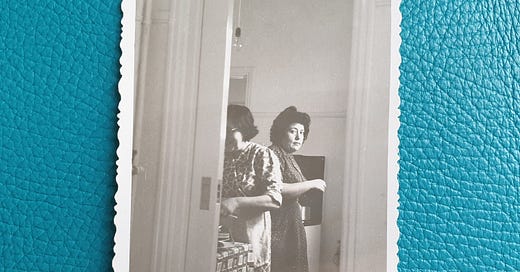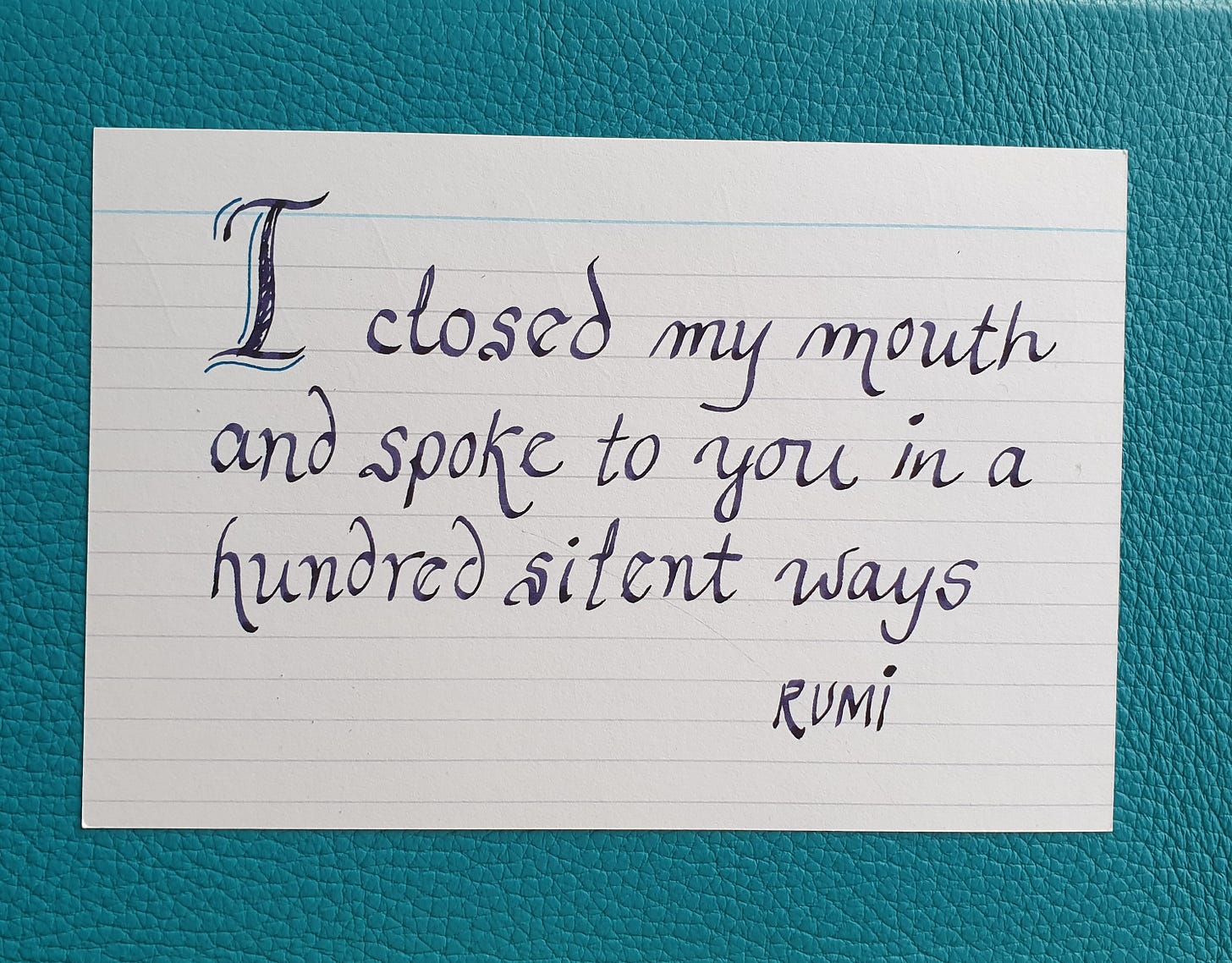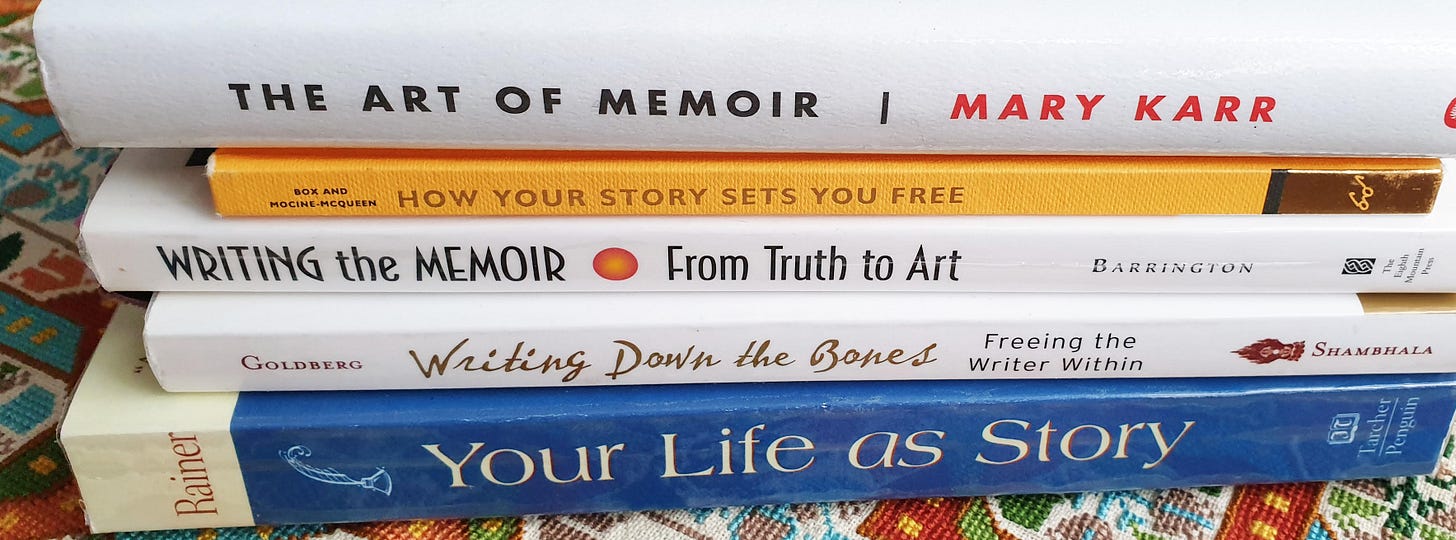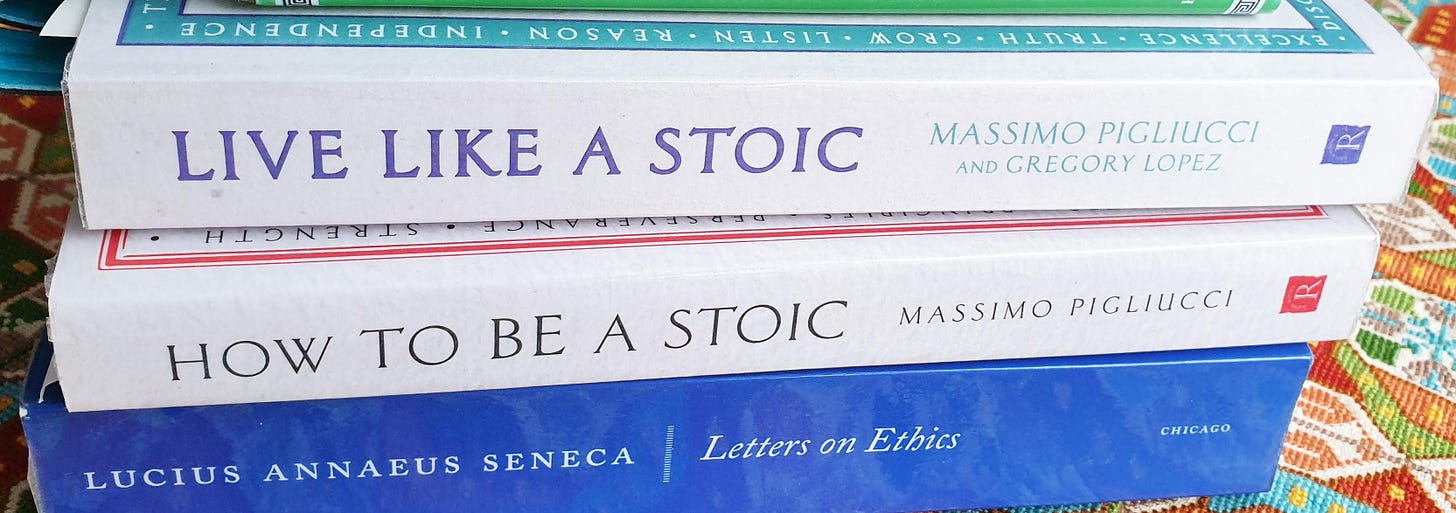Silent connections
Beyond language - but can the ego be bypassed?
When my mother and grandmother, Greek expats raised in Egypt, wanted to exclude my sister and me from the conversation, they switched to French. Believing that the main means of connection is language, I went on to study linguistics, and most of my adult life was taken up with studying languages, teaching them, using them to tell stories, in search of meeting people and connecting.
When I started delving in Eckhart Tolle’s work last autumn, I came across the idea that language is a signpost: the finger pointing at the moon. Of course, the arbitrariness of the linguistic sign, language as a system of symbols are basic topics in introductory linguistics – I had studied them as an undergraduate student - but I kept looking at the finger.
Then I discovered a different way of connecting: I joined an in-person, mini-retreat on Practising the Power of Now organized by Neil French at The Power of Now group on 16 April 2022. No introductions of the participants were made. The retreat began with a paired practice in presence, with the only instruction to try and be present with a total stranger for five minutes without talking or exchanging any information at the beginning of the pairing. (I couldn’t help telling them my name, and so did my partner). I automatically closed my eyes at the outset, not even considering the possibility of gazing into a stranger’s eyes for more than a moment. No physical touch was involved, but after a while, I could sense their energetic outline, even felt the touch of their hands on my upturned palms. After the practice, my partner said they were unsure whether I was comfortable with them looking at me, and kept opening their eyes now and then to see whether I had opened mine (I hadn’t - wouldn’t).
Last Saturday at the mini-retreat How to live a life of Presence I decided to do things differently. I made a conscious decision to keep my eyes open, and stare into my partner’s eyes. It felt uncomfortable: my pupils kept darting off, and it took a lot of effort to keep bringing my gaze back. I did not do as well as in the previous experience in terms of being present and sensing my partner’s energy: my mind kept getting in the way. Five minutes felt like ages. Or the energy from my partner’s eyes felt too intense. Or I felt uncomfortable being seen - the stories the ego keeps telling. My partner reported that they could see my aura radiating in white.
At the debrief, some participants mentioned the relativity of time: for some five minutes was too long, for others too short. One participant said they felt like smiling, often the default reaction of disarming a potential opponent, as is small talk, which we were not allowed to engage in. We acknowledged the cliché that the eyes are windows into the soul; also that staring into another’s eyes may feel either too threatening or too intense.
Neil recommended practising presence with total strangers when sitting in a public place: feel everyone’s presence on a visceral level, feel that another being shares the same spark of the divine, rather than connecting at the level of the ego-story (employment, social status, appearance) which cannot be known of a stranger. This is how children or animals connect.
In the paired practice we consciously refrained from sharing our ego-stories. But can I, or anyone, disregard the ego-story? Don’t we project stories on others based on how they look or speak? Seats on either side of me are usually left empty until all other seats are taken: do I project a boundary with my appearance in hijab? Or do others refrain from encroaching into my space? Thereby hangs another tale and another post.
In the meantime, I look forward to experiencing Neil’s calming, illuminating presence at the next mini-retreat on Who would you be without your story? on 15 October. I am now deep in revisiting the past and working on a full draft of a memoir, so the question, “How do I reconcile the ego-story with memoir writing?” is one I come up against almost every day. I’ve already signed up. Will you join us?
And the rest of the strands…
Summer projects first…
Memoir and Life Writing Group, Summer Stream
We are now at the end of Week 5 of the seven-week Memoir Summer Stream at The London Writers’ Salon. Ten of the fourteen participants have already had an extract from their memoir workshopped and received feedback. To me at least, it has been an enlightening experience, and I am grateful to everyone for the opportunity to learn so much from my fellow writers. To celebrate the conclusion of the Summer Stream, we are organising a showcase event on Thursday 1 September. The details are not finalised yet, but watch the space in the LWS Memoir and Life Writing group.
If you would like to join hundreds of other writers writing in community, join the free Writers’ Hour; one of the four daily sessions is bound to fit in with your daily schedule.
Summer with Seneca - a propos Courage
Summer with Seneca with Kathryn Koromilas at the Stoic Salon is now in Week 8.
We have just read Letter 24 on showing courage in a threatening situation. There’s still 6 weeks to go, so do join us!
Courage is one of the Four Cardinal virtues of Stoicism, but can mean different things to different people. Here’s a recent conversation between Kathryn and Brittany Polat on the topic of courage. I loved listening to the personal stories exemplifying courage, and took away these two points (among many others):
In making a good decision all four virtues (Temperance, Justice, Wisdom, Courage) need to be in operation
Look back for examples of courage in your earlier life and try to tap into that energy again
This conversation is just a preview of the treats they have in store for the Courageous Paths to Flourishing Women’s Stoicon Conference in October, co-hosted by Kathryn and Brittany. Tickets can be booked here.
…and the long-haul project
52 weeks to a good life
Our friendly, wise, supportive community at the Stoic Salon is now halfway through the book Live Like a Stoic: 52 Exercises towards a Good Life book, and has met live on zoom six times so far, the latest one on Saturday 23 July 2022, when the authors themselves Massimo Pigliucci and Gregory Lopez visited us to answer questions from the community.
Do check out the recording here.
If you missed the first meetup with Massimo and Greg on 26th February, you can watch the recording here, or for audio here.
Here follow my notes on the ongoing lessons of the last four weeks.
Week 24 Premeditate on encountering difficult people (10 July 2022)
Once again, I must confess that my sheltered life does not afford me many opportunities to meet difficult people.
But in my small way, I encounter the inconsiderate, the silly and the careless, and I must say that I have tried to develop the attitude that Marcus Aurelius describes in this quote (one of my favourites). “Neither can I be angry with my brother…” highlights the commonality of our human nature.
On the bus the other day, a woman sat on the disabled passengers’ seat and put her overflowing shopping bag on the seat next to her. In true passive-aggressive fashion, I would have cocked an eyebrow, cast a look the kills or ‘tsk’ed audibly, but (I am pleased to report) I did none of all these. I sat at the back of the bus and ran through the possibilities: she may be in more pain that me; there is nowhere else to put this huge bag; she may have too much on her mind to notice. When she got up a couple of stops later, she got off with a lot of difficulty.
I will continue trying to premeditate situations when I feel my boundaries are being encroached (this is a RED button for me), and to internalize reacting with compassion and empathy.
Week 25 Dealing virtuously with frustrating people (17 July 2022)
This week I really have nothing substantial to report: what with wilting in the atrocious heatwave from Sunday until Tuesday, and then with testing covid positive (for the first time ever!) on Tuesday evening, the only frustrating person I have had to deal with this week was myself. I had to take things easy – there was no other way – but kept nagging myself that I was falling behind, and running through mentally what I should be doing blah blah.
The only constructive activity was reading Adult Children of Emotionally Immature Parents; it reduced me to tears in places, as I saw proof of “you are like others, and often do wrong yourself” (no 4 of the ten points in this week’s lesson). Once again, I return to Marcus’ precept, either teach or put up with, both others and myself.
Week 26 Turn difficulties into opportunities (24 July 2022)
Still not quite recovered from Covid, even though I tested negative yesterday afternoon. The overwhelming fatigue is taking a toll on me, and I have done very little constructive over the whole week, except reading the memoir The Glass Castle which had been on my to-read list for quite some time. I console myself that this was an opportunity I wouldn’t have had if I weren’t unwell. A paltry example, I know, but it’s all I’ve got from this week.
Oh, I’ve also had various emotional triggers that point towards the areas I need to work on. In the past I would be feeling impatient and angry with people and situations that ‘caused’ my upset, but now I am increasingly able to see the opportunity for growth in the trigger. A good lesson this week then.
Week 27 Act the opposite of anger (31 July 2022)
I have come across the steps on how to deal with anger rising and the strategies that one can employ to stem anger in other sources too; I can see how they might be effective. However, I suffer (if ‘suffer’ is the right word) from the reverse of this: In my natal family and later in my marriage I had never learned how to express anger in healthy ways (still learning), so my preferred reaction was to ‘swallow’ the anger and let it seethe inside me, with very serious health consequences. I had repressed anger so effectively and for so long that I did not recognize it as such, and rather saw it as low moods or depression. A casual comment in a class sparked my curiosity and opened a whole new line of enquiry. I console myself that at least now I am aware of when I feel anger and am learning how to express what I feel without aggression.
Week 28 Put the sage on your shoulder (7 August 2022)
I have to confess that I feel a visceral resistance to the idea of holding another person as an embodiment of virtue. I tend to run through the ‘archive’ of virtuous behaviours as and when I come across individual situations. So if someone suggests that the rules can be bent for individual gain, I recall Socrates, who drank the hemlock in obedience of his city-state’s law. If I wander off into regret about the past or worry about the future, I recall Eckhart Tolle and try to tap into the present by taking deep breaths and meditating on a plant. And when I find myself dithering over doing something because I am unsure how it will turn out, I think ‘What would my friend Kathryn do?’: Give it your best shot, try it once for a limited time, and even if it doesn’t turn out as good as I’d hoped, at least I will have learned from the experience.
The sage on my shoulder is an eclectic composite of people I have read and known.
We are starting Week 29 tomorrow (“Review your actions nightly”), but you can still join us: just click here.
The heart meets the (left) hand and they embrace imperfection
This quote resonates today, as life stories keep floating up like beach balls that won’t stay down (credit for the apposite simile belongs to Neil French at The Power of Now event)









Lovely, and I so resonate with your 'anger issues' swallowing it down was my coping mechanism too for a lot of years. Then I had a nervous breakdown, who knew there was only so much you could swallow down before it bit you on the butt... lol.
Sending you lots of love xx
Extremely thought provoking read. When you look into someone’s eye you’re looking at a window into their brain. We see with our brains not with the eye …